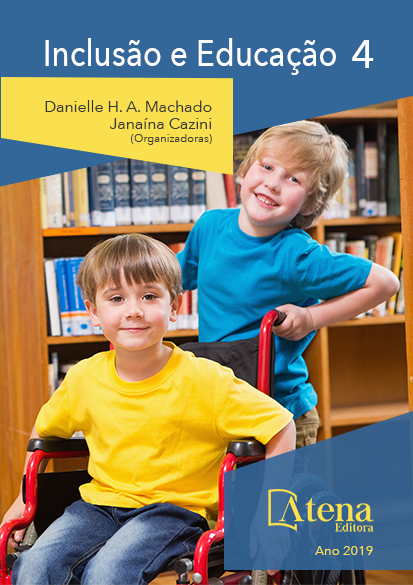
Caminhos para a inclusão: saberes, experiências e formação de professores numa perspectiva inclusiva
Este artigo tem por objetivo apresentar
estudos originados numa dissertação, que
investigava práticas pedagógicas inclusivas,
procurando compreender os saberes
necessários aí construídos, a partir de
narrativas de professores da rede municipal de
Montenegro/RS. A questão central indagava:
Quais são e como podem ser construídos os
saberes necessários à prática dos professores
para a inclusão de alunos com necessidades
educacionais especiais? Para participar da
pesquisa, foram selecionadas cinco professoras
dessa rede municipal de ensino, que atuavam
na Educação Básica nos níveis da educação
infantil, ensino fundamental, educação de
jovens e adultos e no serviço do laboratório
de aprendizagem e que, ao longo de suas
carreiras, incluíram em suas práticas alunos
com necessidades educacionais especiais.
A pesquisa fundamentou-se na abordagem
qualitativa e apoiou-se em Delors, Edler
Carvalho, Mantoan, Freire, Gauthier, Pimenta,
Tardif, Josso, Lüdke e André, Jovchelovitch
e Bauer. A partir do processo de análise, foi
possível identificar três dimensões, com base
nas temáticas utilizadas nesse trabalho: a)
Educação Inclusiva; b) Saberes Necessários; e
c) Vivência/Experiência. No intuito de sinalizar os
achados dessa pesquisa, o trabalho apresenta
as possibilidades e os caminhos encontrados
sob a forma de quatro sínteses temáticas,
que ensaiam uma resposta para a questão
central dessa investigação: a concepção das
professoras pesquisadas; a formação e a
experiência como espaço significativo para
a construção dos saberes necessários; a
vivência/experiência como possível caminho
para a Educação Inclusiva; a quarta e última
síntese nos remete a uma nova perspectiva
dessa investigação, a escola como espaço de
formação e transformação.
Caminhos para a inclusão: saberes, experiências e formação de professores numa perspectiva inclusiva
-
DOI: 10.22533/at.ed.3221915014
-
Palavras-chave: Formação de Professores. Saberes dos Professores. Educação Inclusiva.
-
Keywords: Teacher Training. Teacher Knowledge. Inclusive education.
-
Abstract:
This article aims to present
studies originated in a dissertation, which
investigated inclusive pedagogical practices,
trying to understand the necessary knowledge
built there, from narratives of teachers of the
municipal network of Montenegro/RS. The
central question asked: What are and how
can be built the knowledge necessary for the
practice of teachers to include students with
special educational needs? To participate in
the research, five teachers of this municipal
school network were selected, who worked in Basic Education at the levels of early
childhood education, elementary education, youth and adult education, and the service
of the learning laboratory and who, throughout their careers, students with special
educational needs. The research was based on the qualitative approach and relied on
Delors, Edler Carvalho, Mantoan, Freire, Gauthier, Pimenta, Tardif, Josso, Lüdke and
André, Jovchelovitch and Bauer. From the analysis process, it was possible to identify
three dimensions, based on the themes used in this work: a) Inclusive Education; b)
Necessary Knowledge; and c) Experience/Experience. In order to signal the findings
of this research, the paper presents the possibilities and the ways found in the form
of four thematic syntheses, which rehearse a response to the central question of this
investigation: the conception of the researched teachers; training and experience as
a significant space for the construction of the necessary knowledge; the experience/
experience as a possible way for Inclusive Education; the fourth and final synthesis
brings us to a new perspective of this investigation, the school as a space of formation
and transformation.
-
Número de páginas: 15
- Glaé Corrêa Machado
- GLAÉ CORRÊA MACHADO


